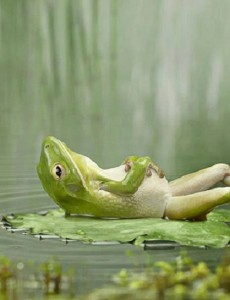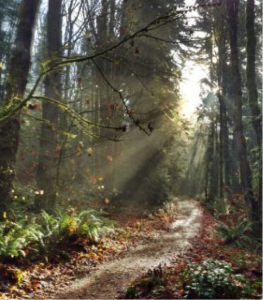 Our Moving into Meditation class draws inspiration from hospice counselor and author Frank Ostaseski and poets David Whyte and Mary Oliver. British-American poet, David Whyte is a Whidbey Island local who also works to connect people in the workplace through his organization, The Institute for Conversational Leadership. He is a most inspiring speaker you can hear his TED talk, A Lyrical Bridge Between Past Present and Future. Mary Oliver is a treasured American poetic voice who won the Pulitzer Prize for her work in 1984 for her book of poems, American Primitive. Both poets convey an evocative, poignant sense of being in those moments in which time seems suspended. Their work surfaces in a spaciousness that allows for connection and creativity. Cultural anthropologist and writer, Angeles Arrien, added her perspective on the essential experience of rest in our lives.
Our Moving into Meditation class draws inspiration from hospice counselor and author Frank Ostaseski and poets David Whyte and Mary Oliver. British-American poet, David Whyte is a Whidbey Island local who also works to connect people in the workplace through his organization, The Institute for Conversational Leadership. He is a most inspiring speaker you can hear his TED talk, A Lyrical Bridge Between Past Present and Future. Mary Oliver is a treasured American poetic voice who won the Pulitzer Prize for her work in 1984 for her book of poems, American Primitive. Both poets convey an evocative, poignant sense of being in those moments in which time seems suspended. Their work surfaces in a spaciousness that allows for connection and creativity. Cultural anthropologist and writer, Angeles Arrien, added her perspective on the essential experience of rest in our lives.
Guided Relaxation
Welcome to being here . . . in this moment . . . this every unfolding now . . . perhaps unfolding those closed areas in your body . . . your heart . . . your mind . . . bringing awareness to these areas . . . tenderly accepting how it feels to be alive right now . . . exploring a slowing, growing sense of spaciousness . . . allowing yourself to rest . . .
Poet David Whyte writes:
“Rest is the conversation between what we love to do and how we love to be.
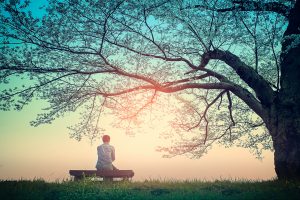 Rest is the essence of giving and receiving; an act of remembering . . . To rest is to give up on the already exhausted will . . . To rest is to give up on worrying and fretting and the sense that there is something wrong with the world unless we are there to put it right; to rest is to . . . shift . . . not to an imagined state of perfect stillness, but to an inner state of natural exchange. The . . . natural exchange is the breath, the . . . giving and receiving . . . the measure of life itself. . . . we are rested when we let things alone and let ourselves alone . . . to breathe as the body intended us to breathe, to walk as we were meant to walk . . . “
Rest is the essence of giving and receiving; an act of remembering . . . To rest is to give up on the already exhausted will . . . To rest is to give up on worrying and fretting and the sense that there is something wrong with the world unless we are there to put it right; to rest is to . . . shift . . . not to an imagined state of perfect stillness, but to an inner state of natural exchange. The . . . natural exchange is the breath, the . . . giving and receiving . . . the measure of life itself. . . . we are rested when we let things alone and let ourselves alone . . . to breathe as the body intended us to breathe, to walk as we were meant to walk . . . “
Right now you can give yourself over to this sense of stopping . . . what you’ve been doing . . . how you’ve been being . . . gradually sensing yourself coming home . . . feeling the giving and taking of breath . . . the blessing and the being blessed . . . let yourself be nourished . .
Frank Ostaseski writes that “. . . we can find a place of rest within us . . . it is always available. We experience it when we bring our full attention to this moment . . . this now. Each time we come to practice we can come to know this ever present spaciousness . . .”
Here . . . right now . . we free ourselves from being imprisoned by our thoughts . . . we open the door to a spacious awareness . . . living each moment . . . trusting we can feel whatever arises . . . emptiness, fear . . . loneliness . . . trusting we will not be forgotten . . .
Our very survival depends on rest. Cultural anthropologist, teacher and writer, Angeles Arrien, writes:
“Nature’s rhythm is medium to slow. Many of us live in the fast lane, out of nature’s rhythm. There are two things we can never do in the fast lane: we can neither deepen our experience nor integrate it. . . . When we lose touch with the rhythms of nature, we become unbalanced. To be fully present within our nature, we must be in balance with the land around us.”
Frank O. uses the metaphor of water to describe the layers of mind:
“. . . On the surface, there is generally a fair amount of turbulence in our thoughts. . . . affected by whatever winds are blowing at the time, the conditions of daily life . . . the stress, anxiety. . . . Settle the mind a bit more . . . and we can begin to sense the more universal currents, those underwater rivers that help to produce the disturbance on the surface. We contact the deeper human tendencies, the instinctual drives . . . They shape our behaviors, create our habits and distort our beliefs . . .
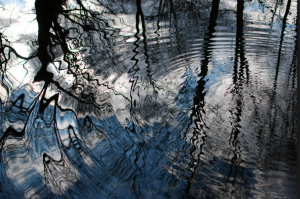 With mindfulness, we start to see, . . . there are these currents moving through my mind . . . they show up as reactivity, fear, anger and desire for control. But they are not particular to me. They are moving through all of us. This is the human condition.
With mindfulness, we start to see, . . . there are these currents moving through my mind . . . they show up as reactivity, fear, anger and desire for control. But they are not particular to me. They are moving through all of us. This is the human condition.
. . . This is the beginning of our release from self-consciousness into a more expanded appreciation of life, this realization that we are all subject to conditions beyond our control. . . . This recognition . . . gives rise to more empathy, compassion and acceptance . . .
If we drop still further beneath the surface of our minds, we encounter a vast serene calmness. . . . We are simply finding a natural place of rest . . . observing the movement of our minds and hearts . . .
Resting in open awareness, we release ourselves . . . “
Invitation
Oh do you have time to linger
for just a little while out of your busy
and very important day for the goldfinches
that have gathered
in a field of thistles
for a musical battle, to see who can sing the highest note,
or the lowest,
or the most expressive of mirth, or the most tender?
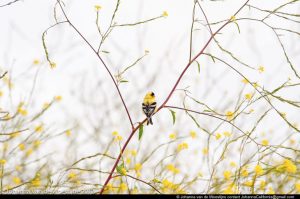
Their strong, blunt beaks
drink the air
as they strive melodiously
not for your sake and not for mine
and not for the sake of winning
but for sheer delight and gratitude— believe us, they say,
it is a serious thing
just to be alive
on this fresh morning in the broken world. I beg of you,
do not walk by
without pausing
to attend to this
rather ridiculous performance.
It could mean something.
It could mean everything.
It could be what Rilke meant, when he wrote: You must change your life. ~ Mary Oliver
What happens to you while lingering on fresh mornings in this broken world?

